The main purpose of modern geophysics is to study and comprehensively assess the available natural resources, as well as protect the environment, forecast natural disasters. Geophysicists today are engaged in the study of the oceans, conduct space exploration and monitor nuclear testing.
In our review, we dwell in more detail on the description of the features of the work of the geophysicist, its advantages and disadvantages.
Features
Geophysics It is a set of scientific areas that study the origin of natural and man-made phenomena, as well as the features of their course on planet Earth. Geophysics is directly related to biological disciplines, as well as to such sciences as astronomy, physics, chemistry, mathematics, geology, geography and some other exact and natural sciences.
The development of the Earth is unthinkable without geographical observations - measuring distances, calculating the movement of oceans and seas, describing the features of the course of emergencies and natural disasters. In the XVII – XIX centuries. discoveries were made of the very first laws of macrophysics. It was at the same time that humanity came to understand the need for fundamental observations - for this, geophysical observatories began to be created everywhere.
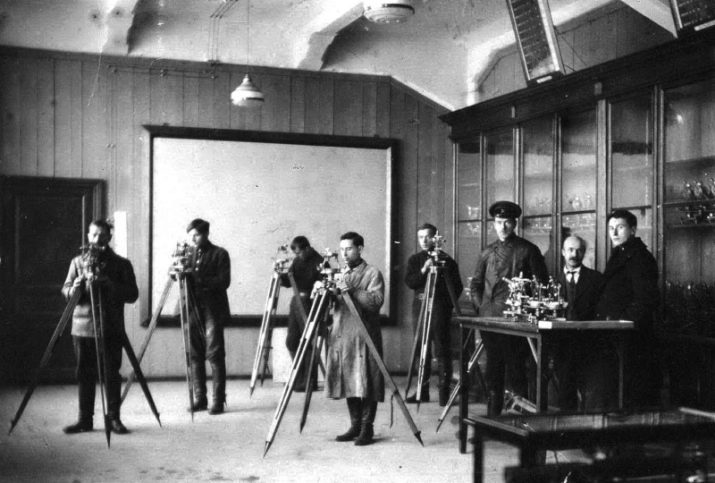
In the 60s. of the last century, with the introduction of electronic computer technology, geophysicists were able to automate their long-term observations, and the use of the latest physics has allowed us to move from the problem of studying the internal structure of the planet to the features of the earth's interior.
The professional capabilities of geophysicists have significantly expanded due to space exploration, even a new scientific direction has appeared - planetary science, in it the methodology of geophysical research plays a major role. It considers all the main tasks facing a modern person:
- development of alternative natural resources;
- protection of the planet’s population from disasters and natural disasters;
- prevention of industrial accidents.
All this made geophysics one of the most relevant scientific areas of natural science.
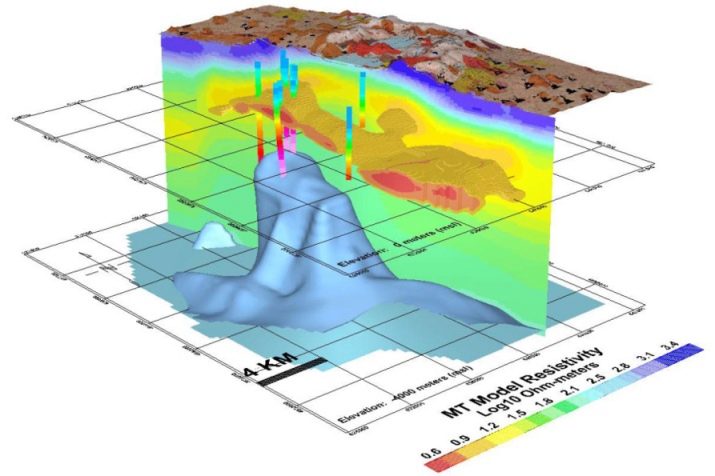
Geophysicists, as a rule, specialize in one of the following scientific areas.
- Solar-terrestrial geophysics explores the basic processes and interaction of interplanetary systems.
- Atmospheric physics is studying the existing possible atmospheric manifestations, is divided into meteorology and aeronomy. The first explores the lower atmosphere, and the second, respectively, the upper.
- Atmospheric optics is based on the study of all kinds of optical effects, as well as thermal studies. The knowledge obtained by the geophysicist in this field is used to make scientific discoveries in the field of electricity use.
- The exploration area is a subsection of science whose employees are engaged in the survey of the earth's crust, as well as in the search for deposits and deposits of minerals useful to humanity. Realizations of this direction are actively used in the search for groundwater, gas, as well as ore and oil.
- In recent years, nuclear geophysics has been developing everywhere; it has become one of the most interesting areas of science. Its tasks include studying the effects of radioactive radiation on the Earth. As part of this area, geophysicists are also developing the latest instruments to easily determine the density and thickness of earth layers, and to calculate the probability of occurrence of minerals in them.
Thanks to scientists in this industry, it is possible to discover previously unexplored deposits of oil, gas and ores, and also to simplify the methodology of exploration geophysics many times.

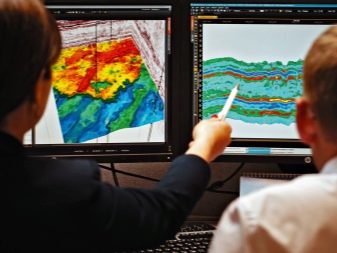
Like any other specialty, the work of geophysics has its advantages and disadvantages. Let's start our acquaintance with the positive aspects.
- Highly competitive salary. A geophysicist performs many tasks during the performance of his job duties, for which employers are willing to pay a decent salary.
- The ability to travel around the world and make acquaintances with interesting people.
- Skilled geophysicists make all kinds of discoveries that radically change the way people think about what is happening on our planet.
- Geophysicists are able to anticipate the occurrence of natural anomalies, which is why the merits of geophysicists are highly valued.
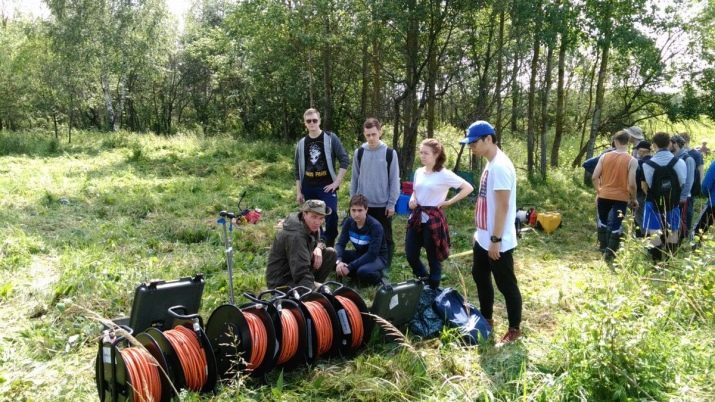
It is worth mentioning the cons:
- high workload - the daily routine of geophysicists often leaves no time for a good rest;
- frequent business trips impede the building of personal life and the maintenance of normal family relationships;
- in the work of “field” geophysics, the probability of accidents is high;
- staying in harsh conditions can adversely affect the health of a specialist.
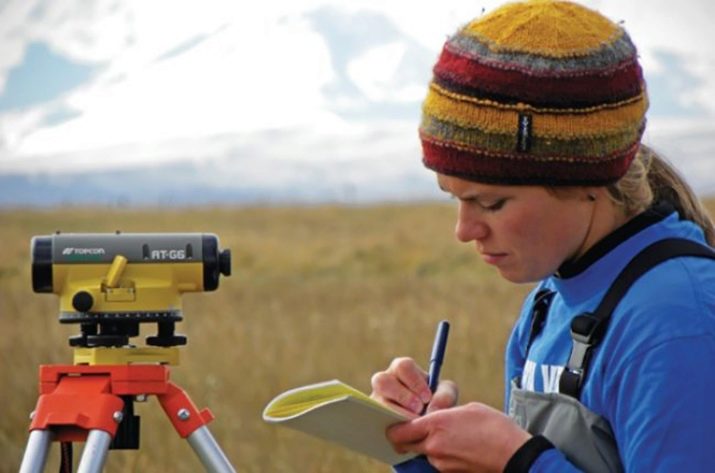
Responsibilities
Speaking globally, the tasks of geophysics are as follows:
- the study of the structure of planet Earth and the features of the processes occurring in it, as well as interaction with the Sun and other objects of the solar system;
- study of the main processes occurring in the atmosphere and other earth shells;
- observation of the evolution of the planet’s natural resources;
- study of the effects of thermal rays coming from the atmosphere on all life processes on Earth;
- survey of available groundwater and oceans resources;
- the study of phenomena and processes that can assist in protecting nature and maintaining a favorable environmental situation on the planet.
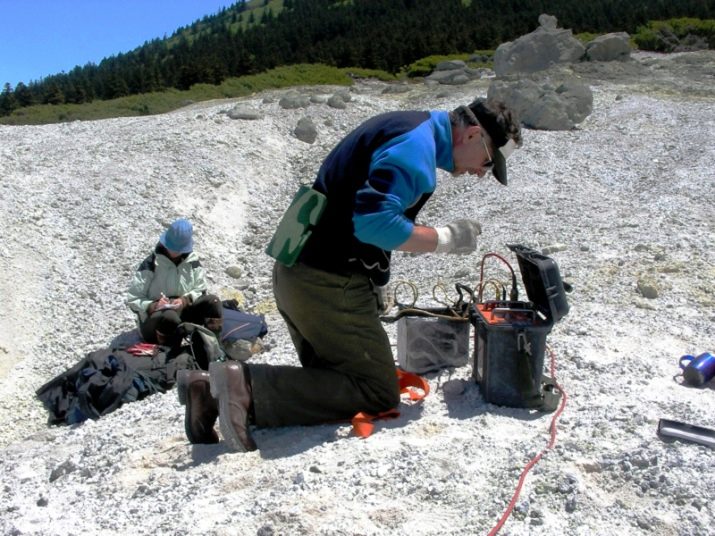
Based on these tasks, the job description forms the main responsibilities that a geophysicist must fulfill. This specialist:
- studies natural resources and gives them a reasonable assessment;
- deals with environmental issues;
- predicts meteorological changes;
- warns of probable emergencies and natural disasters;
- develops alternative sources of energy based on the study of the oceans and space;
- controls nuclear weapons testing.
It can be confidently stated that without the work that scientists are doing, research and further development of our planet would simply be impossible - humanity could not receive all the minerals and prevent technogenic and serious natural disasters.
That is why in modern society, the work of geophysics is highly regarded - the discoveries of these people can change the concept of humanity about life in general. In addition, the data of their research allows us to find and develop new deposits, which helps to improve the quality of life of people on the planet.
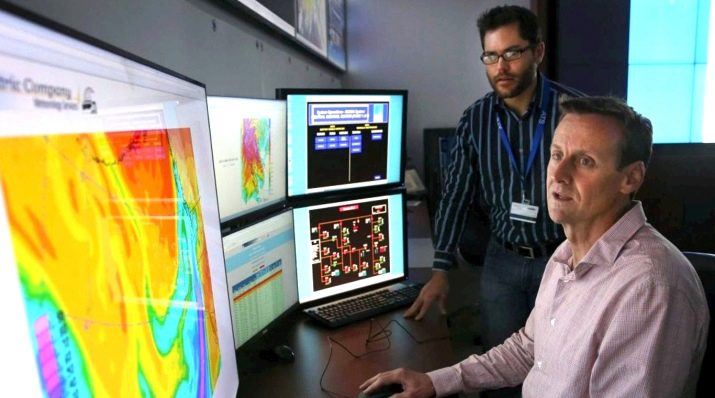
Knowledge and skills
It should be noted that the geophysicist is a rather complicated profession. In order to understand the essence of the work, you should familiarize yourself with the basic requirements that apply to these specialists. Here are just some of them.
- The presence of a keen mind. Willingness to conduct a wide variety of scientific research.
- Since, by the nature of his activity, geophysicists have to constantly communicate with a huge number of people, he must be sociable and be able to find a common language with others. And given that when conducting field research, many geophysicists have long lived as a separate group of scientists away from settlements, this worker will need balance and the ability to smooth out sharp corners.
- This person should be distinguished by an increased level of personal responsibility. He should be able to correctly assess his own abilities and prioritize any workflow.
- A geophysicist must have the skills of time management in order to effectively allocate his time.
- In the event of any emergency, this specialist should be in control, keep calm and quickly find solutions to the problem.
- The work of geophysicists requires a broad outlook, a large amount of quality knowledge in related fields. That is why a specialist must constantly improve his scientific qualifications.
- Geophysicists are required not only to search for information, but also to analyze it. This means that he must have the skills to systematize and structure the data obtained. An important skill is charting and reporting.
Obviously, this specialty needs an increased level of responsibility. In addition, a professional in his field should have an impressive range of skills and knowledge in various fields of science.
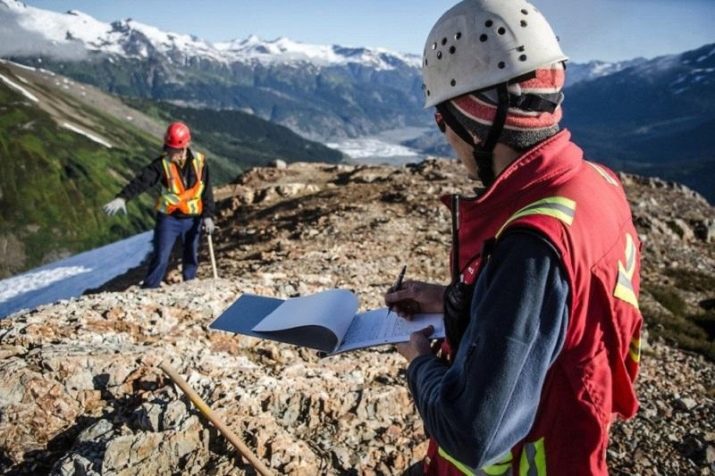
Education
In order to become a competent geophysicist, you must obtain higher specialized education and undergo training in programs that will help to acquire the necessary skills and knowledge in this profession.
After passing the theoretical training, the geophysicist should confirm your professional qualifications practical work experience. During training, this specialist studies mathematics, physics, chemistry, geography, biology, and many other areas.
A requirement for any geophysicist is scientific applied activity, therefore, university studies are completed by writing and defending their research project.
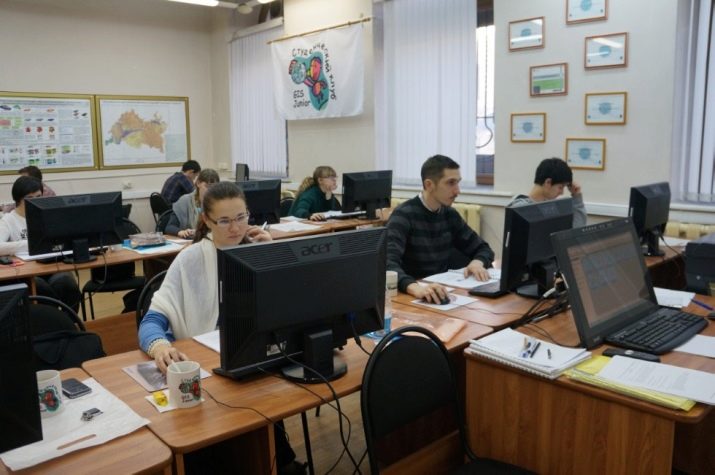
Place of work
The workplace of a geophysicist can be located both in the research institute and in the "fields" directly at the place of research. Most of the employees usually go to the wells. There they are engaged in geophysical exploration and processing of the obtained data by performing calculations using measuring equipment and various computer programs. A geophysicist can draw up a plan of deposits, calculate the probable efficiency and profitability of their development.
These people often have to work in difficult, uncomfortable conditions - at a depth of several kilometers underground or in the northern regions, where the temperature can drop to -50 degrees. In some cases, the employee’s laboratory may also be “field” and located directly in the sample collection area,
This happens if the study is urgent or lifting to the surface can damage the material.
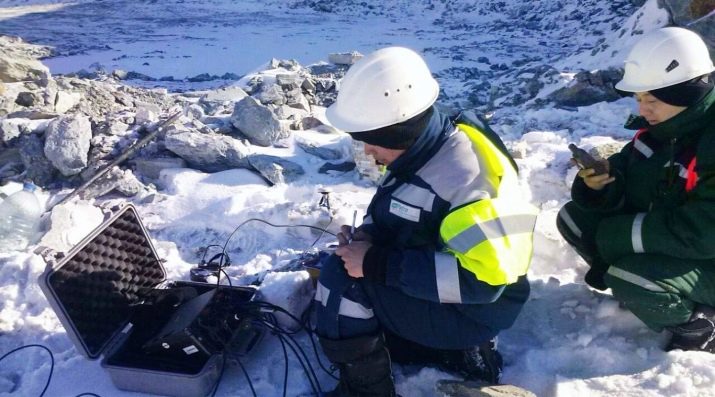
How much do they earn?
The salary of geophysicists in our country varies from 30 to 130 thousand rubles.
Typically, employees working in office conditions of research institutes, GTI operators receive about 30-50 thousand rubles. The work of scientists directly involved in data collection is rated much higher — specialists who work in difficult conditions earn at least 80–90 thousand rubles. per month.

For more information on the profession of geophysicists, see the next video.










